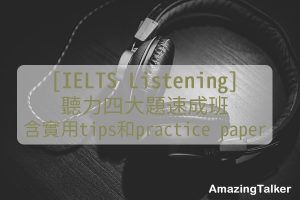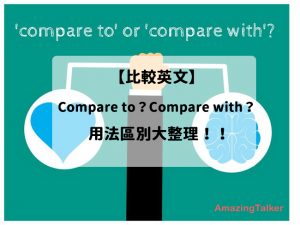一、主動(Active)用法
以上四個使役動詞(make、have、let、get) 常見的基本用法,句型結構如下:
主詞(S) + 使役動詞 (CV) + 受詞 (O) + 原型動詞 (原V)
簡單來說,這裡最大的重點就是: 在使役動詞的「主動」用法中,受詞後面要加的是「原型動詞」(base verb),也就是常聽到的: 使役動詞要加原V。
讓我們進一步從以下的例句來看:
Annie made her boyfriend cut his hair.
S(主詞) + CV(使役動詞) + O(受詞) + 原V + O.
安妮使她的男朋友剪頭髮。
The teacher had the school call the student’s parents.
老師要求學校打電話給學生的家長。
Jack let his friend borrow his car.
傑克允許他的朋友借他的車。
※特別注意
Get 雖然列在使役動詞之中,但特別的是get的後面要加的是「不定詞」(infinitive verb),也就是「to +原V」
Nancy got her sister to sew(縫製) her a dress.
南茜說服她的姊姊為她縫製一件洋裝。
[小複習]
在主動用法中,make, have, let三個使役動詞後必須加原型動詞(原V);
特別的是Get 後面加的是不定詞(to +原V)。
[貼心小提醒1.] 易混淆動詞
很多動詞的意思和使役動詞接近,都是叫某人去做某事,因此常常會被誤認為是使役動詞,像是 “want, ask , tell…”,但事實上這些動詞的用法和普通的動詞相同,在連結其他動詞時,就是使用常見的to+ 原V的狀態,所以小編建議大家只要把特別的四大使役動詞記起來就好了,剩下的就是一般的普通用法囉!
[貼心小提醒2.] 使役動詞中的多義字
make 和 have 除了上面提到的當作「使役動詞」的用法外,要注意它們還有其它的意思: 像是make 還有「製造、製作」的意思;have 則有「有、舉行、吃、喝」等的意思,所以看到題目,不能只直覺反應 make 或 have 一定是「使役動詞」後面加原型動詞的用法,因此還是要看上、下文意思小心判斷喔!
從例句來看:
Father wants me to wash the car tomorrow afternoon.
爸爸要我明天洗車。
Mr. Wang asked them to finish their homework yesterday.
王先生昨天要求他們完成作業。
[牛刀小試]
D 1. Our teacher wants us ﹍﹍﹍ at least two hours a day.
(A) study (B) studied (C) studying (D) to study
A 2. Because of the low marks on the last math test, Mrs. Pan makes her son﹍﹍﹍ it at least two hours a day.
(A) study (B) studied (C) studying (D) to study
C 3. Carol is popular in her class because she often helps her classmates ﹍﹍﹍ their homework even when she is busy.
(A) does (B) doing (C) do (D) are doing
※ 補充: help 是否為使役動詞是有爭議的,因此在此並未列在上面,而help的用法是後面的所接的第二個動詞可用「原形動詞」或是「不定詞」的型態。
Example:
Our teacher helped us (to) practice singing.
我們老師幫助我們練習唱歌。
A 4. Don’t let children ﹍﹍﹍on the busy streets. It’s dangerous.
(A) play (B) to play (C) have played (D) playing
C 5. Edwin: Hey, Brian. Where’re you going?
Brian: I’m going to the supermarket. My mom has me a pack of salt for her.
(A) getting (B) to get (C) get (D) will get
二、被動(Passive)用法
使役用詞最常被搞混的就是被動的用法,因此在這裡我們只要記住大原則:
當我們要表達某人「被」要求去做某事時,使役動詞後的動詞需要改為「過去分詞」(也就是p.p) 的狀態。
句型:
make/have/get + 受詞 + p.p (past participle form)
let + 受詞 + be p.p
進一步讓我們從簡單的例句來看:
I had my hair cut.(動詞p.p)
字面上: 我使我的頭髮被剪 → 我叫人剪了我的頭髮。
I had my homework done. (動詞p.p)
字面上: 我使我的功課被完成 → 我完成了我的功課。
I got my car fixed. (動詞p.p)
字面上: 我使我的車被修理 → 我叫人修理我的車。
How could you let your plan be revised like that?
你怎麼能讓你的計劃這樣改成那樣呢?
[小複習]
在被動用法中,make, have, get三個使役動詞後的動詞必須改成「過去分詞」的型態(p.p);特別的是let後面加的是「不定詞」(to +原V)。
[牛刀小試] 翻譯
1. 因為天氣太冷了,老師要 Ken 把教室的門關上。
Because the weather was/is too cold, the teacher made/makes Ken close the door of the classroom.
2. 今天早上,Wilson 先生叫人把他的車子修理一下。
This morning Mr. Wilson made his car be fixed.
3. 上禮拜,他做了一間狗屋,以便讓他的狗睡在裡面。
He made a dog house to let his dog sleep in it last week.
最後,可以再看一次這部影片做個總複習喔!
English Grammar – Causative





















